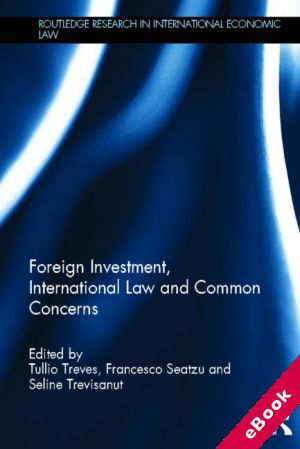
The device(s) you use to access the eBook content must be authorized with an Adobe ID before you download the product otherwise it will fail to register correctly.
For further information see https://www.wildy.com/ebook-formats
Once the order is confirmed an automated e-mail will be sent to you to allow you to download the eBook.
All eBooks are supplied firm sale and cannot be returned. If you believe there is a fault with your eBook then contact us on ebooks@wildy.com and we will help in resolving the issue. This does not affect your statutory rights.
Increasingly, trans-national corporations, developed countries and private actors are broadening the boundaries of their investments into new territories, in search of a higher return on capital. However, various exponents of international civil society and NGOs, as well as a growing number of academic researchers, persuasively claim that such growth of financial capitals in the form of foreign investments constitutes a potential and serious hazard both to the environment and the fundamental rights and freedoms of local populations. The relationship between foreign investments, currently the largest source of foreign private capital reaching developing countries, and common concerns, global threats that affect one single state, a specific group and/or the whole international community appears particularly problematic.
This book explores, from an international law perspective, the various facets of the relationship between foreign investments and common concerns. It pays particular attention to the role of the main international development banks in reconciling the needs of foreign investors with the protection of common concerns, such as the environment, human rights and labour rights. The volume asks questions of international investment law including: how much "regulatory space" does investment law leave? Are there common features at the institutional and interpretative level regarding the relationship between human rights, the protection of environment and investment law? Is international investment law an effective means of balancing contrasting interests? Does investment arbitration currently constitute a mechanism of global governance? This book provides valuable insights to the relationships between international investment law and common concerns looking at both substantive issues and institutional aspects.